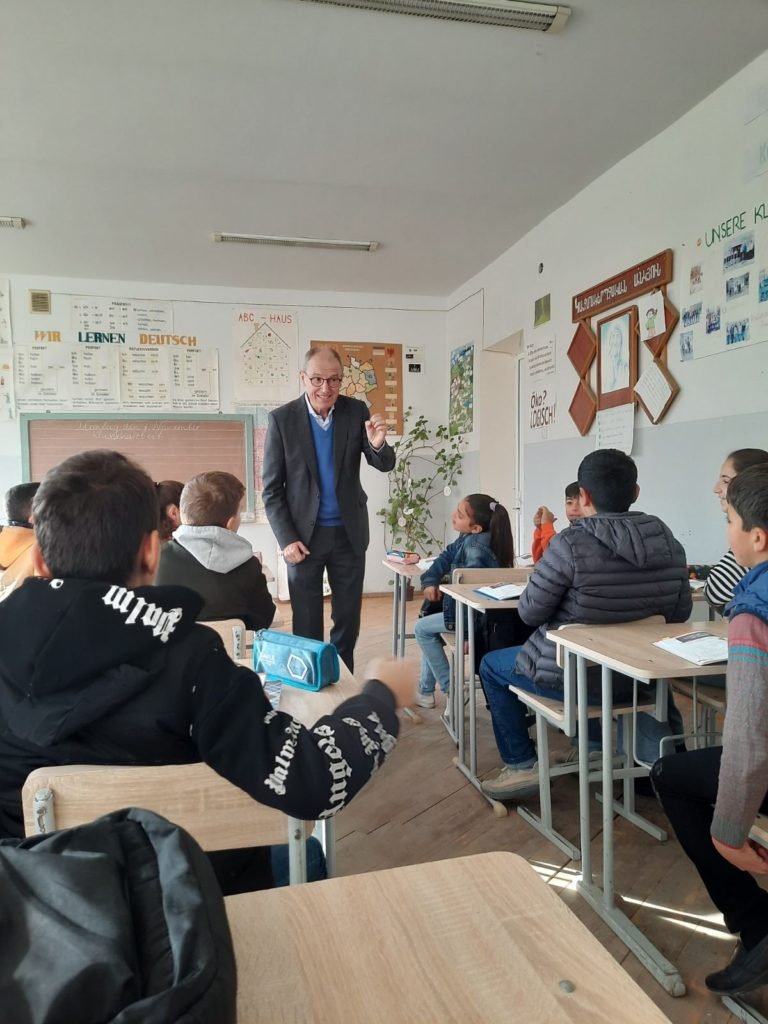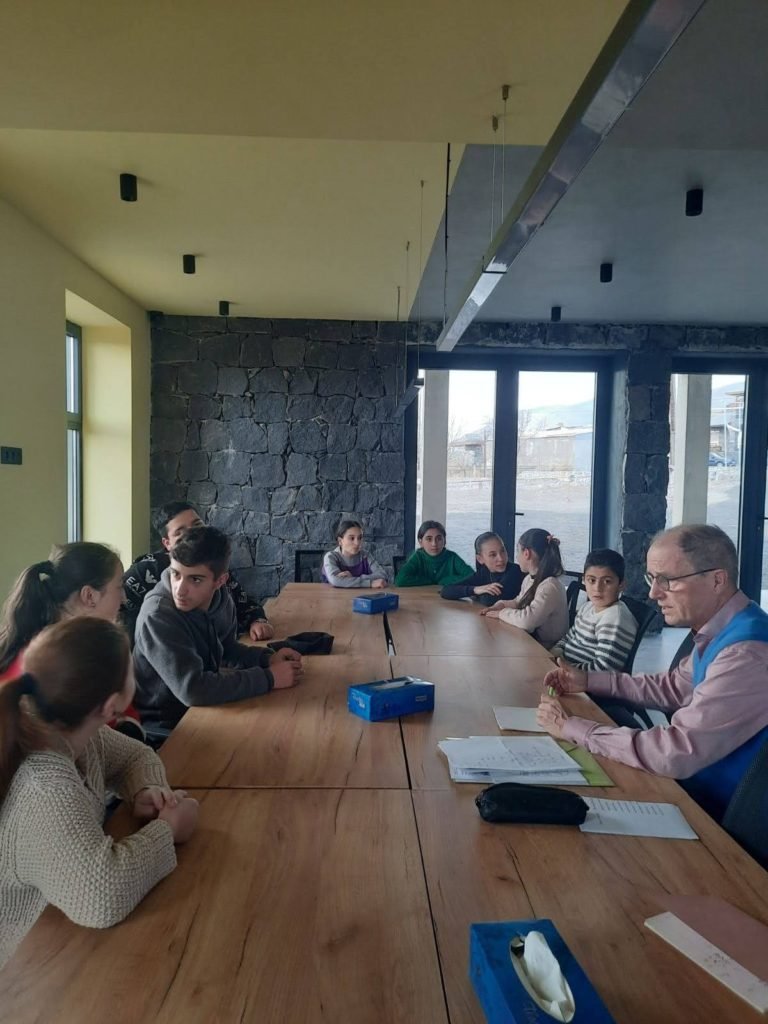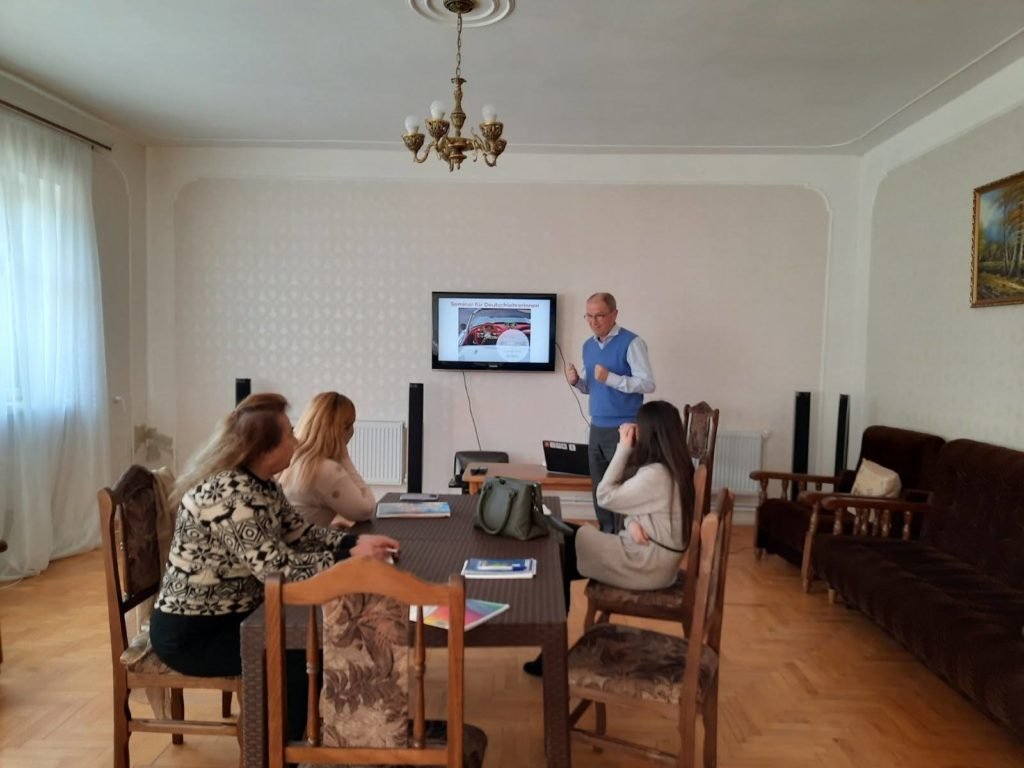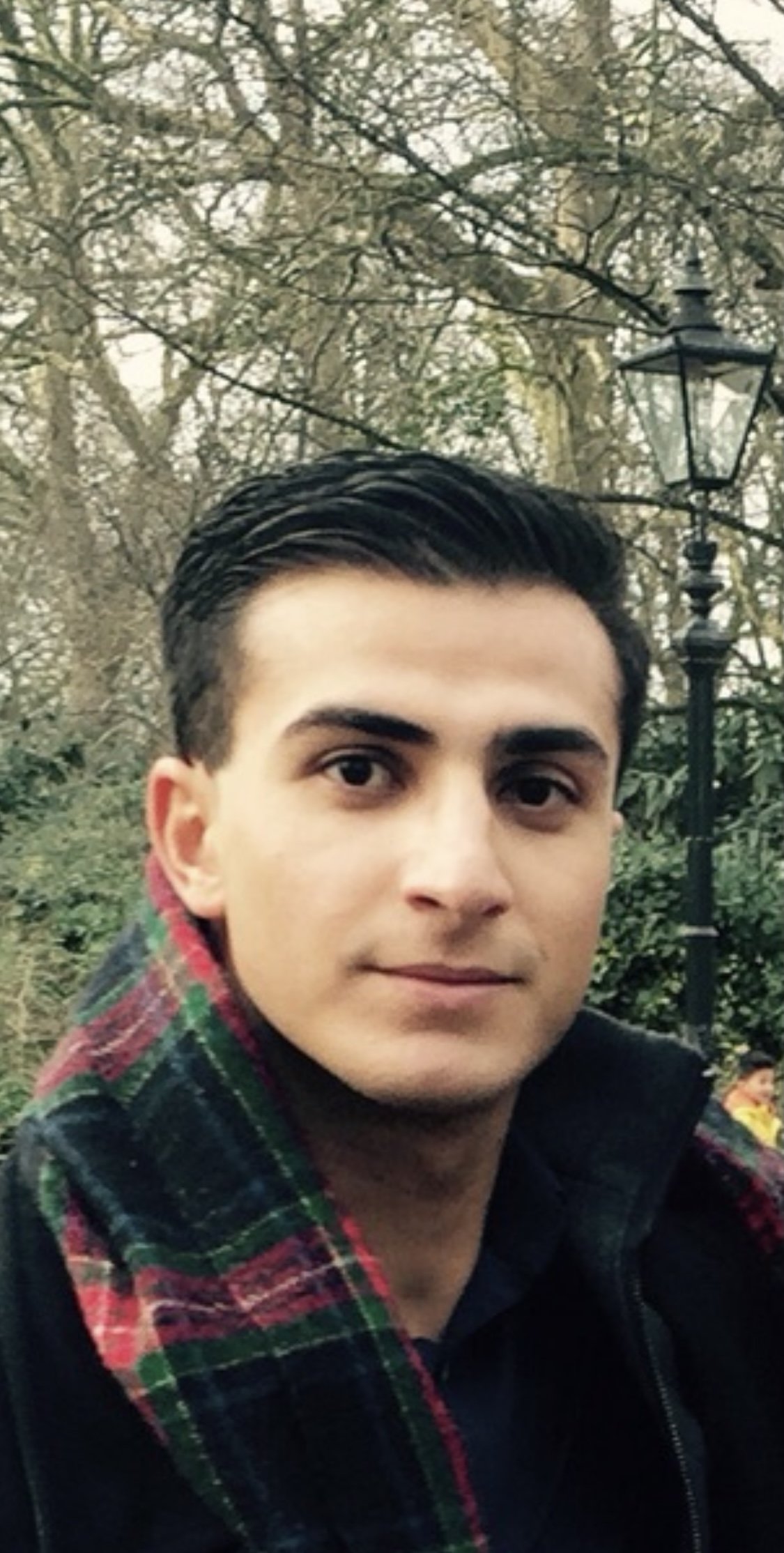What would inspire someone to go to a country at war and volunteer? Such a question one would ask Hans-Christoph Pocha, a former headmaster and teacher of 40 years from Germany. When Pocha retired from his position as an educator of students and teachers alike, he knew he wanted to take his expertise to a place that needed it. Pocha came to Armenia in 2021 through the Armenian Volunteer Corps (AVC), a program that finds volunteer opportunities in Armenia for people of all ages and nationalities. After a month in Yerevan, Pocha returned to Germany and came back to Armenia, only this time with the intention of working in the villages.
Specializing in language education, Pocha instructs teachers how to teach languages. As a headmaster, he would try to foster new and innovative ways of education, such as incorporating a school ambulance, a film program and other extracurriculars—a stark contrast to the still Soviet methods of teaching in the Armenian villages. He chose to volunteer in Armenia after following the 2020 war from Germany. “Armenia needed support, and I felt I could support the country through my expertise,” he explained. He wanted to devote himself to a cause that would need him after his retirement, because he is a firm believer of the idea “Learn. Earn. Return.”

When it comes to instructing teachers, he believes that “the learning culture must change.” To that end, he has introduced new ways of teaching foreign languages. By educating the teachers, he is able to indoctrinate a superior path of education that will likely benefit the community beyond the classroom. Pocha says the current method makes “the students see themselves as a passive part of the education. They should be an active part.” His goal is to increase student engagement while learning the language so that they become a part of the learning experience. “I find instructional teaching inappropriate for teaching foreign languages,” Pocha explains.
In schools in the village of Ddmashen in the province of Gegharkunik, Pocha noticed some of the strengths as well as pitfalls of the educational system. He describes the textbooks as “inadequate.” “It’s such a shame that these texts and what they read doesn’t take them any closer to contemporary Germany,” says Pocha. Which begs the question: how can learning German benefit the children of an Armenian village? As it turns out, quite a bit.
When Pocha arrived in Armenia, he saw how much appreciation and respect there is for Germany and the German people in Armenia. When he saw this love for Germany, he was “really touched by the esteem, the respect and the appreciation of Germany.” It would be clear then for a country that appreciates Germany so much that learning the language can only be beneficial, but Pocha takes it a step further. “Learning a new language opens a new world,” he shared. Even before Pocha’s arrival in Ddmashen, German was the most-taught foreign language in the area next to Russian.

Pocha recalled a warm welcome from everyone upon his arrival. Despite the still rigid methods of teaching, when Pocha decided to implement new ways of education he says, “There was no resistance.” Clearly, the educators at the school saw the benefits of having Pocha with them. His enthusiasm and expertise have positively impacted the state of education in the region.
Yet why would an educator of 40 years want to volunteer as an educator in a village? He was drawn to the villages because he felt that, while Yerevan is an international place, the villages should not be forgotten. “My motivation is that they deserve this,” said Pocha. “The people, especially the kids deserve this. [They] deserve attention and respect.”
Learning a new language adds to the culture and understanding of a person, let alone an entire village. Not only has Pocha grown the linguistic capacity of an Armenian village, but he has also brought modern ways of teaching to its students, all while expanding Armenia’s worldview. When asked about how the future can manifest through his work, he answered, “In education, progress is a snail.” Yet he remains committed to the cause saying that he hopes to return to Armenia. So long as there is a desire from Armenia, he will continue to offer his support to the teachers and students. “Changes can happen,” he says.




Be the first to comment